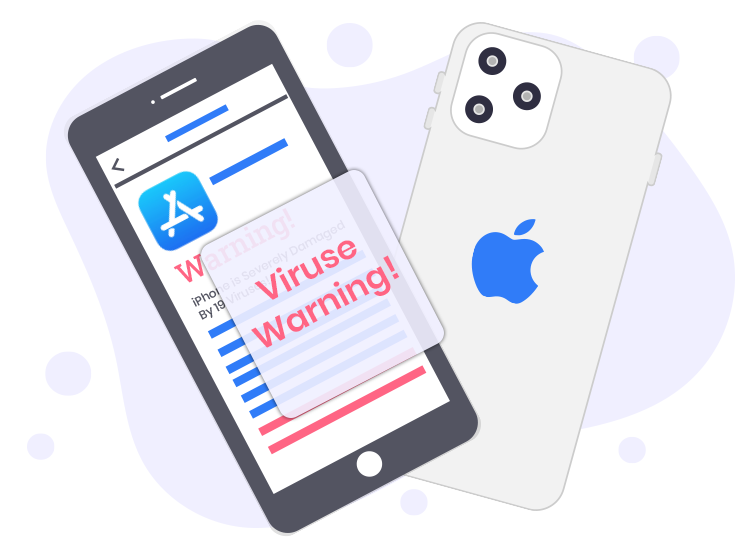
“Your Apple iPhone is severely damaged by 19 viruses”, also known as “Your iPhone is highly damaged by 5 viruses” is a browser-based pop-up scam triggered by a group of online scammers when iOS users click on the unsafe links present in the body of spam emails or visit a malware-infected website. Such malicious websites display fake pop-up warnings claiming that your iPhone is infected with viruses. It then encourages users to download and install a potentially unwanted application (PUA) on their devices to get rid of the allegedly found viruses as soon as possible.
“Your Apple iPhone is severely damaged” Pop-Up Scam: Detailed Analysis
Fake error messages and virus alerts like ‘iPhone is severely damaged’ is nothing more than a scam. The aforementioned pop-up warning is followed by a specific number of virus infections (the number of malicious entities found may vary) supposedly detected on the iPhone or iPad device. The warning is shown in such a way that it would trick you into thinking your iPhone is infected with 19 viruses, and if you do not take immediate action, then those viruses will delete all your contacts and damage the SIM card.
It does this to scare you into clicking on the ‘remove virus’ button. We strongly advise you to avoid clicking on such links or buttons. Because when clicked, you will get redirected to rogue web domains where a number of potentially unwanted applications and sponsored services are promoted. You might also see various attractive coupons, survey links, deals, discounts that, when clicked, trigger downloads/installations of illegitimate security software which in return would install another virus or adware program.
The main purpose of the cyber crooks behind redirecting users to such deceptive web pages is to boost traffic for their partners and generate revenue via a pay-per-click mechanism.
Important Tips to Avoid Fake Pop-Up Scams
Here are some of the important security and web browsing tips that you should always follow to avoid the installation of potentially unwanted applications.
- Never click on the suspicious pop-up ads or deals.
- Download software or applications only from official websites.
- Always opt for Custom installation while installing freeware.
- Use a reliable and genuine anti-virus/anti-spyware/anti-malware software.
- Make sure all installed applications are updated at all times.
- Avoid using cracked or pirated versions of paid applications.

